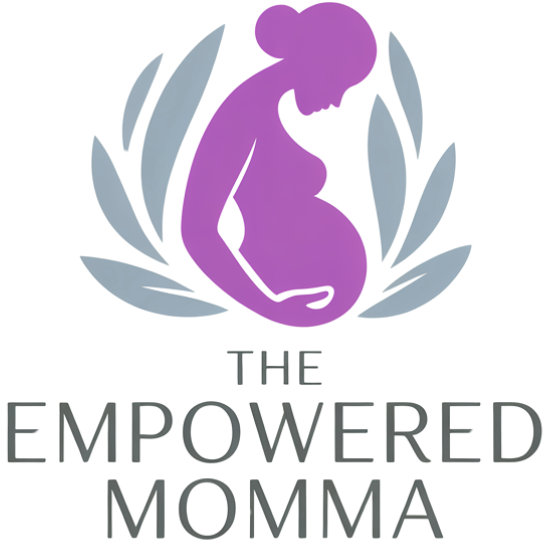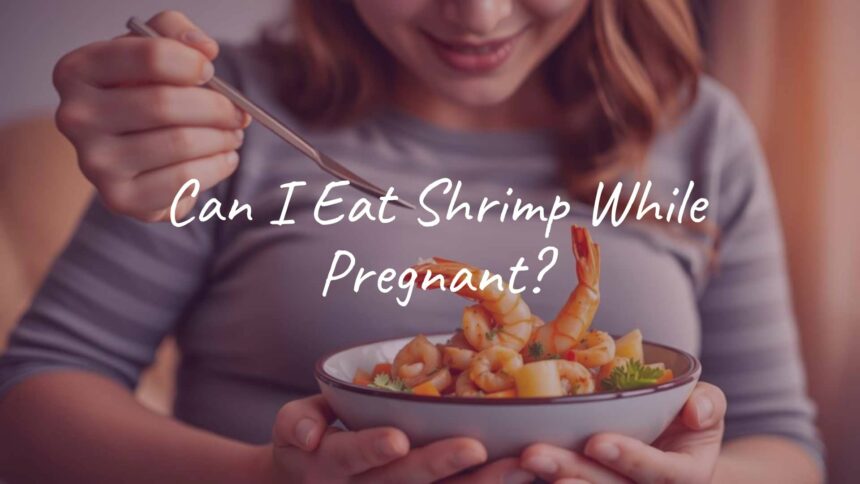Yes, you can eat cooked shrimp when you are pregnant. Even though some seafoods are not safe during pregnancy because of high mercury or a risk of food poisoning, shrimp is not one of them. As long as it is fully cooked and eaten in reasonable amounts, shrimp can be a good part of your pregnancy diet. It provides important nutrients for you and your growing baby.

Is shrimp safe to eat during pregnancy?
Yes, shrimp is considered safe to eat while pregnant. It has low mercury compared to bigger fish like swordfish or shark, making it a much safer choice. To stay safe, remember to eat cooked shrimp in moderate quantities and make sure it is prepared properly.
Many people worry about seafood while pregnant, especially when it comes to mercury levels. Instead of skipping all seafood, experts and health organizations agree that cooked shrimp is safe. They also mention that it’s a healthy addition to a pregnancy meal plan.
What do experts and guidelines say?
Groups like the Food and Drug Administration (FDA), Environmental Protection Agency (EPA), and Dietary Guidelines for Americans all say that shrimp is safe for pregnant people. They include shrimp on their list of “best choices” of seafood, thanks to its low mercury levels.
They also explain that fish and shellfish give important nutrients for your child’s growth and development. Pregnant people are advised to eat 8 to 12 ounces (or about two to three servings) of low-mercury seafood each week. This advice helps you get benefits from fish while keeping mercury at a safe level.

How much shrimp should I eat?
Shrimp is safe, but eating too much of any food isn’t a good idea. The guideline is for pregnant people to have between 8 and 12 ounces of low-mercury seafood, including shrimp, per week. This usually means two to three palm-sized servings. For shrimp, that’s roughly the size of your hand per serving.
Remember, there’s still a small amount of mercury in all seafood-even the low-mercury ones-so it’s best to spread out your servings over the week. This way, you get all the nutrients without too much mercury.
Benefits of eating shrimp during pregnancy
Shrimp isn’t just safe-it’s also full of nutrients that benefit both you and your baby. Shrimp is low in fat and high in protein, vitamins, and minerals that are important for health and development during pregnancy.

Key nutrients in shrimp
3 ounces of cooked shrimp give you about 20 grams of protein, which helps build and repair body tissues.
- Omega-3 Fatty Acids: Especially DHA and EPA, which help the baby’s brain and eyes develop.
- Iron: Important because your blood volume increases during pregnancy. Iron helps prevent anemia and keeps you from feeling tired all the time.
- Vitamin B-2 (Riboflavin): Helps give you energy and supports growth and development.
- Vitamin D: Necessary for strong bones and a healthy immune system for both mother and baby.
- Magnesium: Helps muscles and nerves work the right way and supports blood sugar and blood pressure.
- Potassium: Maintains fluid balance and helps your nerves function as they should.
- Zinc: Needed for a healthy immune system and for growth and cell division.
- Calcium: Shrimp isn’t the top source, but it adds to your calcium intake, which helps form your baby’s bones and teeth.
Eating these nutrients together helps your immune system and supports your baby’s growth during pregnancy.
How shrimp helps your baby’s development
Shrimp offers nutrients that are important for your baby. The omega-3s-especially DHA-help the brain and eyes grow, especially in the first trimester. These nutrients are the building blocks for brain cells and good vision.
Protein is needed for cell growth. Iron lets the baby get enough oxygen. The other vitamins and minerals make sure bones, immune system, and organs grow the right way. Including shrimp as part of a balanced diet helps your baby develop well.
Risks and safety tips
Shrimp is mostly safe, but there are still things to watch out for, like small traces of mercury and the chance of food poisoning if the shrimp isn’t handled or cooked properly.
Mercury in shrimp
The main reason some seafood is off-limits in pregnancy is because of mercury. Too much mercury can harm your unborn baby’s brain and nerves. Big fish like swordfish, shark, king mackerel, tilefish, and some tuna are high in mercury and should be avoided when you are pregnant.

Luckily, shrimp is low in mercury, so it’s fine to eat in portions that fit the weekly guidelines. Cooking or cleaning shrimp doesn’t lower the mercury, so it’s safer to choose kinds that are already low in mercury, like shrimp itself.
Risks of foodborne illness
Another risk is food poisoning. Your body can’t fight off certain infections as easily when you’re pregnant. Raw or undercooked seafood, including shrimp, can carry bacteria like Listeria or parasites that can make pregnant people very sick. This could even harm your baby.
To stay safe, don’t eat raw or undercooked seafood. This includes raw sushi, sashimi, oysters, clams, scallops, and ceviche. Also, avoid refrigerated or smoked seafood unless it’s cooked until steaming hot.
Allergy or intolerance
If you already know you’re allergic to shrimp or other shellfish, you should stay away from it. Signs could include hives, swelling, trouble breathing, or stomach upset. If you notice a reaction, get in touch with your doctor. Pregnancy can sometimes make allergies stronger.
How to eat shrimp safely during pregnancy
To safely enjoy shrimp while pregnant, make sure to cook it well, watch your portions, and buy shrimp from trusted places.
Cooking and preparing shrimp safely
Shrimp must always be cooked all the way through. Raw or undercooked shrimp is gray and see-through, but when it’s fully cooked, it turns white and opaque with pink or red highlights.
Cook shrimp until it reaches an internal temperature of 145°F (about 63°C). This can be checked with a food thermometer. If using raw shrimp, rinse in cold water and remove the head, shell, tail, and the vein along its back. Wash your hands well after handling raw seafood.

When eating out, double check that your shrimp dish is cooked through. Don’t be shy to ask how it’s prepared. At sushi places, look for cooked shrimp options, like shrimp tempura rolls.
How much shrimp should I eat?
Keep within the recommended 8 to 12 ounces per week. This is 2 or 3 servings, where each serving is the size of your hand or a deck of cards.
| Calorie Needs Per Day | Recommended Seafood per Week |
|---|---|
| 1800-2000 calories | 8 ounces |
| 2200 calories | 9 ounces |
| 2400-2800 calories | 10 ounces |
What kinds of shrimp and what to avoid
Both farmed and wild-caught shrimp are safe, as long as they are fully cooked. Avoid eating any raw seafood, including raw shrimp in sushi or ceviche, or products that are only cold-smoked unless you reheat them until hot.
Buy shrimp from reliable stores or fish markets. If you catch shrimp yourself, check if there are any advisories for seafood safety in your area.
Common questions about shrimp and pregnancy
Many people have questions about eating shrimp while pregnant. Here are a few answers:
Can I have shrimp sushi or raw shrimp when pregnant?
No, you should not eat raw or undercooked shrimp when you are pregnant, including sushi made with raw shrimp. The risk of food poisoning is higher during pregnancy. Always go for cooked shrimp sushi options-just double check that everything in your meal is fully cooked.
Is frozen or farmed shrimp safer?
Frozen, farmed, and wild shrimp are all low in mercury and safe if you cook them thoroughly. Frozen shrimp, when defrosted and cooked, is just as good as fresh. The most important thing is to make sure shrimp is fully cooked before you eat it.
What should I do if I ate undercooked shrimp?
If you have eaten undercooked shrimp, watch for symptoms such as nausea, vomiting, cramps, diarrhea, or fever. If you feel unwell or are worried, contact your doctor or your country’s emergency health service for advice. Acting quickly is always best in these situations, especially while pregnant.
Quick tips for safely eating shrimp during pregnancy
- Shrimp is a safe and healthy choice for pregnant people if cooked thoroughly.
- Eat no more than 8 to 12 ounces of shrimp (about 2-3 servings) per week.
- Always avoid raw or undercooked seafood.
- Pick shrimp from trusted sellers and prepare it safely at home.
- Shrimp gives you protein, omega-3s, iron, and other nutrients your baby needs.
If you follow these guidelines, you can enjoy shrimp as a tasty and nutritious part of your pregnancy meals, helping you and your baby stay healthy.


